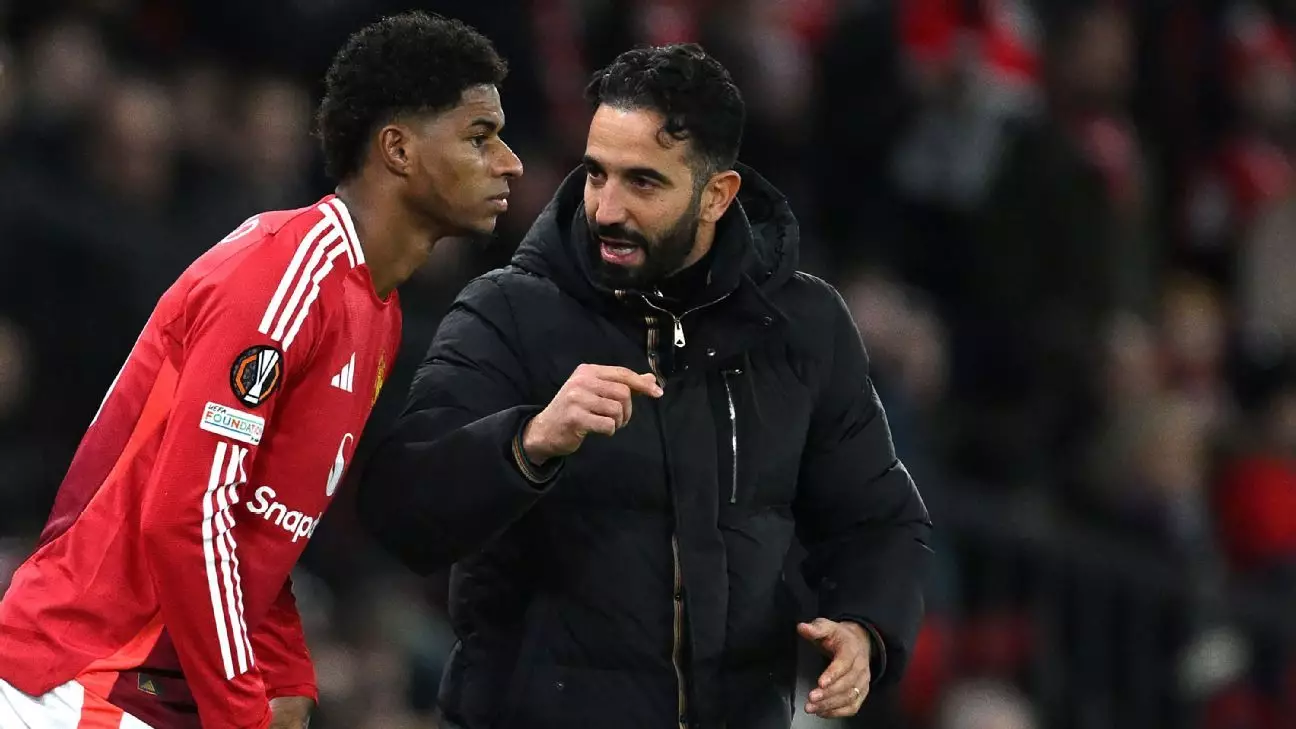Ruben Amorim, the current manager of Manchester United, finds himself at a critical juncture as the club grapples with a perilous position in the Premier League. Following a disheartening defeat against Newcastle at Old Trafford—a match that marked the club’s fourth consecutive loss—United now languishes in 14th place, perilously just seven points above the relegation zone. This grim trajectory not only raises urgent concerns among fans but also places immense pressure on Amorim to devise an effective strategy to reverse the team’s fortunes.
Despite the pressing need for squad reinforcements, Amorim has publicly downplayed expectations for any significant signings during the upcoming January transfer window. In his recent statements, he emphasized the financial realities facing the club, suggesting that spending lavishly to overhaul the squad is not an option. “We don’t have that possibility in January,” he succinctly stated, underscoring the constraints that have hindered the club’s ability to act decisively in the market. According to sources from ESPN, any transactions may hinge on player departures, indicating a delicate balancing act between acquiring new talent and managing the existing roster.
With a recognized system in place, Amorim has faced intense scrutiny regarding his tactical choices. Although there are calls from various quarters for him to adapt his approach—transitioning potentially to a 4-3-3 formation—he remains unwavering in his commitment to the 3-4-3 setup. “I have to sell my idea,” he articulated, recognizing the difficulties that players face when forced to adjust after years of practicing a different tactical approach. His adherence to this system reveals not only his strategic philosophy but also points to a deeper understanding of the need for consistency in player development and team identity.
As Manchester United prepares for a daunting trip to Anfield to face league leaders Liverpool, the stakes could not be higher. The historical rivalry and the current league positioning combine to create an atmosphere thick with tension and expectation. Amorim understands the importance of maintaining faith in his strategic vision despite the team’s struggles: “If I change all the time it is going to be even worse,” he cautioned. His approach aims to instill confidence in players who have recently been underperforming—conceding that while the team has encountered significant roadblocks, allegiance to his tactical framework is essential for long-term success.
Ruben Amorim stands at the helm of Manchester United during a turbulent chapter defined by poor form and potential peril. As fans and analysts alike scrutinize his every decision, his refusal to abandon the 3-4-3 formation speaks to a broader commitment to building a coherent identity. With the January transfer window looming and financial hurdles hindering immediate reinforcements, Amorim’s patience and clarity of vision will be indispensable as he seeks to revitalize a team in urgent need of direction and resolve.

